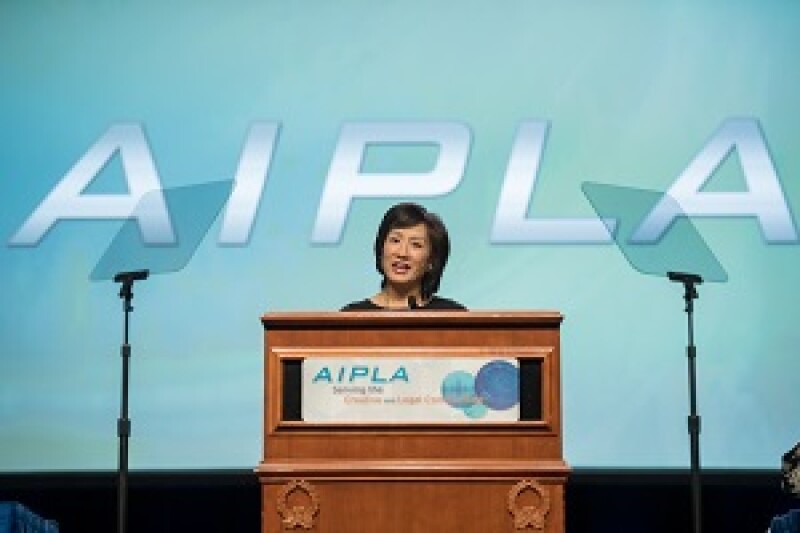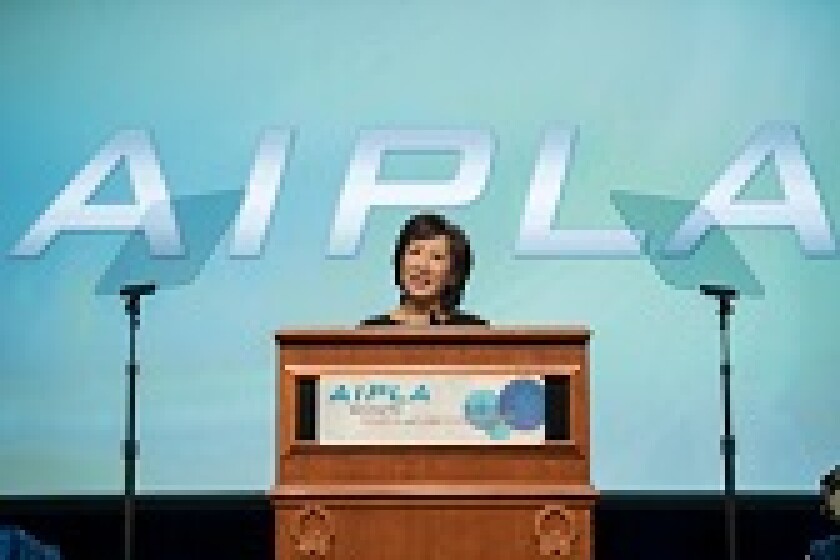
Lee cited the reductions in the USPTO's backlog and pendency times as "emblematic of how much the USPTO has charged forward the last eight years."
Lee said: "This has been a team effort, with incredible work done by my predecessors, Congressional cooperation, the incredibly dedicated and talented staff at the USPTO, and all of you."
When President Obama took office in January 2009, the backlog and pendency numbers were "at all time highs," she said. In spite of an increase in overall annual filings, Lee reported the patent backlog has been reduced by about 30% since then. In addition, pendency has been reduced by about 25% and the USPTO is more financially stable since the enactment of the AIA. In spite of some bad press such as the controversy over patent examiners' work hours, the USPTO was among the most highly-ranked Places to Work in the Federal Government and Lee insists that "we've strengthened our working relationship with our employees."
Lee said that these strengths enabled the USPTO to dedicate itself to "a core goal" – her patent quality initiative. "There is a cost to society when the USPTO issues a patent that we should not issue, just as there is a cost to society when we don't issue a patent that should issue. And just as there is a cost to society when there is a patent in the system that properly issued, but that may no longer be valid due to changes in the case law. Recognizing this, we have enhanced the quality of patents in our system, both before they leave our office and after the patents return to the office through our PTAB and other post-grant review proceedings," Lee said.
Though much of her keynote speech related to patents, Lee spoke of her pride at being at the White House as President Obama signed the Defend Trade Secrets Act into effect, and of the USPTOs overhaul of TTAB rules.
She also said that she was honored to be a part of STEM efforts to educate young people about the value and importance of IP, referencing a Girl Scout IP Patch and inventors baseball cards, "so all our kids can see themselves as inventors!" Lee said that educating kids this way is "not just a social imperative, it's an economic imperative."
Lee spoke of her own childhood, as the daughter of immigrant parents. "When they bravely left their homeland in China to move to the United States to build a new life, did they ever imagine their daughter would one day be in such a meeting, in such a role? They understood America is the land for those willing to work hard and embrace its values," she said. Lee closed by acknowledging that her hard work is far from done. "Our issues are important, complex and nuanced," she said. "We are well prepared to work together and with all of you to accomplish our top priorities and successfully address the challenges ahead and ensure that our greatest inventions are yet to come."










